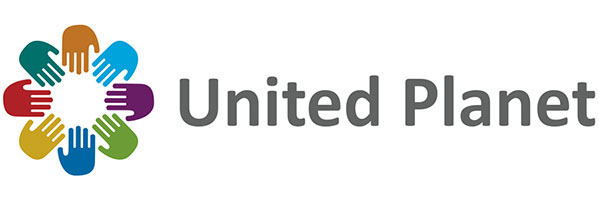We are always ecstatic when we receive updates from our volunteers in the field. This letter comes from Jeff, who is currently volunteering in Nepal on a yearlong United Planet Long-Term Quest. He reflects on his time at the HOPAD house, a local orphanage and women’s empowerment organization. His account of adjusting to Nepali life is simultaneously humorous and thought-provoking, as he brings us through his journey of embracing a culture completely foreign to his own. Below is Part One of his letter…

Namaste Dhai ra Didi haru, Brothers and Sisters,
First, I would like to wish you all a Happy New Year! I am well aware we are halfway through February as it is, but I want not to deprive you all from a well wish. This New Year has ushered in a great new perspective on my life and the world around me, and I hope it has brought the same to you. As always, much here has been happening at the HOPAD house; some positive, while others negative, but we are trying to receive them all the same. For me, the beginning of a new year presents a wonderful opportunity for personal introspection, and I would like to offer to you all a brief insight into my own self examination.
There were many things I thought I would never find myself being comfortable doing. There were many acts that were inconceivable to me prior to my time here in Nepal. However, as I slowly peel away the layers of my own culture and misconceptions, I find myself being more open and willing to meet these judgments and fears head-on. Although on the surface, these performances may seem simple and mundane—which many of them are—with a small amount observation I have been able to extract truth and reassurance from these tasks. I have slowly found ease, both bodily and mentally, in eating simply and the same food every meal. I now find great joy in walking everywhere I go, regardless of distance. I even thoroughly enjoy the islandic nature my relationship with the mass media has become. However, there are two tasks that have left great impressions upon me, and each time I do them, a unique knowledge and insight is extracted from them.
 It is no secret that since the beginning of time man has had bowel movements. Naturally, once the act of eating has concluded, the body goes to work extracting all the necessary energy needed to perform its daily activities. Unfortunately, there are many elements within each meal in which the body cannot use and is forced to dispose of. It is here we find the wondrous creation of poop. Feces, B.M.s, fecal matter; no matter what you call it, it remains the same. We all do it whether we want to or not and yet in Western society the topic of poop is deemed taboo and socially impolite. Granted, poop may not be the most elegant topic of conversation, but for something we all naturally do daily, I don’t think it needs to be tip-toed around.
It is no secret that since the beginning of time man has had bowel movements. Naturally, once the act of eating has concluded, the body goes to work extracting all the necessary energy needed to perform its daily activities. Unfortunately, there are many elements within each meal in which the body cannot use and is forced to dispose of. It is here we find the wondrous creation of poop. Feces, B.M.s, fecal matter; no matter what you call it, it remains the same. We all do it whether we want to or not and yet in Western society the topic of poop is deemed taboo and socially impolite. Granted, poop may not be the most elegant topic of conversation, but for something we all naturally do daily, I don’t think it needs to be tip-toed around.
Here in Nepal, poop is handled rather differently—pun intended—from that of their Western counterparts. The idea of poop is neither frightening nor disgusting to the Nepali people. It is merely a natural occurrence and is treated as such. Affectionately known as long toilet, a Nepali number-two doesn’t refer to the number of trees killed cleaning up after the fact. This was perhaps one of the last cultural traits I chose to embrace. For many Westerners, the wipe with the left and eat with the right method is never adopted. However, after about a month or so of secretly wasting paper I was forced to confront my left-handed fears. After a long internal dialogue, I started wondering why I was so hesitant to touch my own waste. I didn’t view the food I ate as disgusting or foul so why should I view it as such once it has been processed? Since then my left hand has found a new purpose and I have happily adopted the Nepali poop culture as I find it to be more hygienic and significantly less wasteful.
Continuing with the topic of waste, I have found my interactions with the Nepali trash system to be equally as impactful. Unfortunately, there are no socially structured systems for disposing of waste or recycling materials here in Nepal. There are no garbage cans, dumpsters, waste deposits, or recycling centers. It is understandable that litter and pollution is on the back burner as the government has yet to produce a national constitution. However, being a pure green Vermonter at heart, it breaks me down every time I see a child throwing a wrapper on the ground or the neighbors burning their garbage. Over time, I became less sensitive to strangers tossing empty cigarette boxes and gum wrappers on the street and slowly accepted the helpless feeling of turmoil the acts produced in me. However, I would soon realize that becoming numb to an act doesn’t change anything and it took just one small trash fire to show me why…

Read Part Two of Jeff’s Letter from the Field, as he shares an experience that will make us all think twice about the waste we produce in our daily lives.
If you are interested in volunteering in Nepal, visit our Nepal homepage to read more about each volunteer project. If you would like to volunteer abroad in another country, check out our interactive map to see our other opportunities!
ABOUT UNITED PLANET
United Planet is a non-profit organization with a mission to create a global community, one relationship at a time. Established in 2001, United Planet offers volunteer abroad, virtual internships, internships abroad, gap year volunteering, and global virtual exchange in more than 40 countries.




